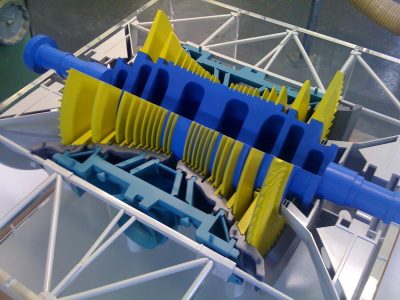
CNC machining is a type of manufacturing process that uses computer-controlled machine tools to create parts with high precision. This technology has been around for decades and has been used extensively in various industries, including aerospace, automotive, and medical.
In recent years, however, CNC machining has become increasingly popular in the field of research and development due to its many benefits. Let’s take a closer look at what CNC machining is and how it can be beneficial for research and development engineers.
How CNC Machining Works
CNC machining works by inputting a design into a computer which is then translated into code that controls the movement of the machine tool. The machine tool then starts cutting or shaping the material according to the design. This process can be used to create both simple and complex parts with a high degree of accuracy.
One of the biggest advantages of CNC machining is its flexibility. Unlike traditional machining methods, CNC machining can be easily adapted to create different types of parts without the need for special tools or fixtures. This makes it an ideal choice for research and development engineers who often need to prototype different designs quickly and efficiently.
In addition, CNC machined parts often have better surface finishes than those made with traditional machining methods. This is because CNC machines can operate at higher speeds and with greater precision than manual or conventional machine tools. As a result, CNC machined parts often require less post-processing, which can save time and money in the long run.
Finally, CNC machining can be performed on a variety of materials, including metals, plastics, composites, and even some ceramics. This makes it a versatile manufacturing process that can be used to create parts for a wide range of applications.
How CNC Machining Can Benefit Research and Development Engineers
 In the world of research and development, time is of the essence. The faster you can develop and iterate on a product or prototype, the sooner you can bring it to market. That’s where CNC machining comes in. This process is quick and precise, which makes it ideal for prototyping. Here are three ways that research and development engineers can use CNC machining to improve their products or prototypes.
In the world of research and development, time is of the essence. The faster you can develop and iterate on a product or prototype, the sooner you can bring it to market. That’s where CNC machining comes in. This process is quick and precise, which makes it ideal for prototyping. Here are three ways that research and development engineers can use CNC machining to improve their products or prototypes.
1. Speed Up the Development Process
As we mentioned before, one of the biggest benefits of CNC machining is that it’s fast. With CNC machining, you can quickly create a prototype from a computer-aided design (CAD) file. This means that you can go from concept to prototype in a matter of days or weeks, rather than months or years. And the faster you can develop and iterate on a product, the sooner you can bring it to market.
2. Create More Accurate Prototypes
Another benefit of CNC machining is that it’s very precise. When you’re developing a product, it’s important to have a prototype that accurately represents the final product. With CNC machining, you can create prototypes that are identical to the final product in terms of dimensions and material properties. This way, you can be sure that your product will meet all your performance requirements before it goes into production.
3. Save Money in the Long Run
CNC machining can also save you money in the long run. When you’re developing a new product, the cost of prototyping can add up quickly. But with CNC machining, you can create multiple prototypes for less money than it would cost to create just one prototype using traditional manufacturing methods. Plus, if you need to make changes to your design, it’s easy and affordable to do so with CNC machining. In the end, this will save you time and money by getting your product to market faster and making fewer mistakes along the way.
CNC machining is a quick and precise manufacturing process that is ideal for prototyping. It can speed up the development process, create more accurate prototypes, and save money in the long run. If you’re a research and development engineer looking to improve your products or prototypes, CNC machining is definitely worth considering.
Thompson Precision Engineering have years of experience in this field and a huge amount of expertise within the team, so why not get in touch today to talk more about your Research and Development Project.





